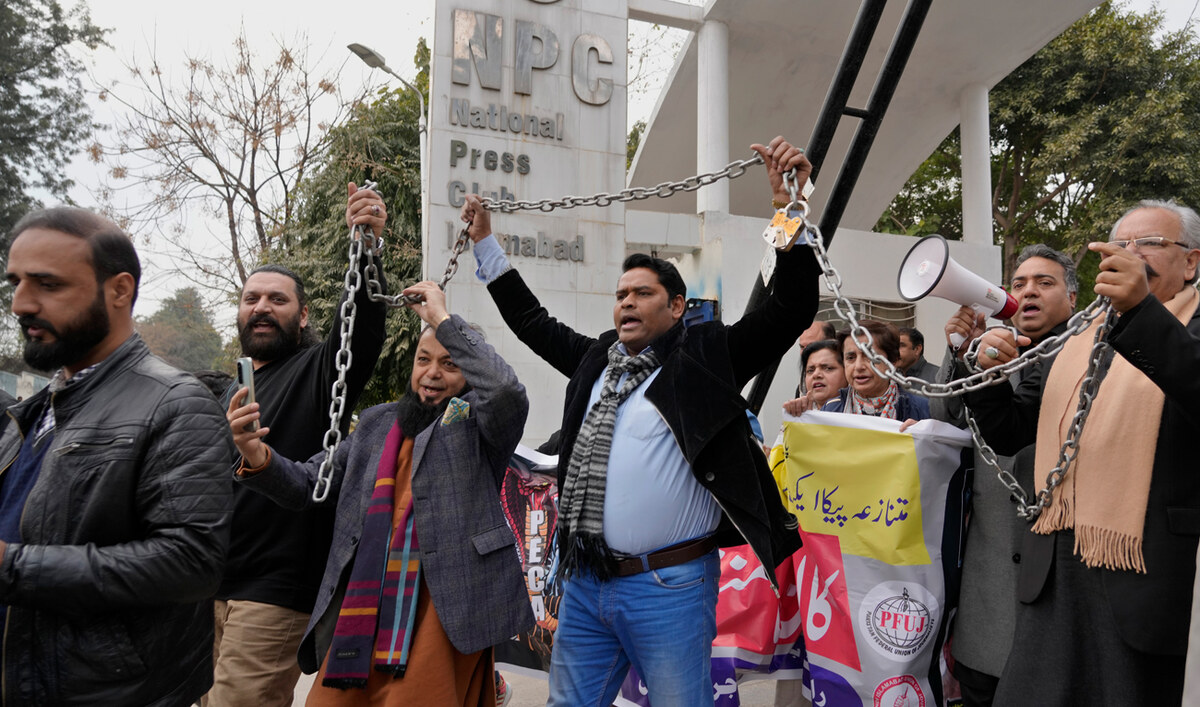ISLAMABAD: Since the launch of the China-Pakistan Economic Corridor (CPEC) seven years ago, Beijing had already brought $25 billion in direct investment to Pakistan, Pakistan’s state news agency reported the Chinese Foreign Ministry as saying.
CPEC has seen Beijing pledge over $60 billion for infrastructure projects in Pakistan, central to China’s wider Belt and Road Initiative (BRI) to develop land and sea trade routes in Asia and beyond.
During his regular briefing in Beijing on Wednesday, Foreign Ministry Spokesperson Wang Wenbin said many projects had already been launched and completed under CPEC, including recently the Orange Line Train in Lahore.
“Last month as an early harvest project, the Orange Line was made operational, marking the beginning of the subway era for Pakistan,” Wang said.
“These projects enhanced infrastructure and electricity supply in the country and created more than 70,000 direct positions and contributed one to two percentage points to the country’s GDP growth,” the spokesperson added.
He said CPEC projects had also enhanced regional connectivity, saying Pakistan’s neighbor Afghanistan was now importing food and other essential items through Pakistan’s Chinese-funded, deepwater port of Gwadar.
Gwadar, in the southwestern province of Balochistan, is the crown jewel of CPEC and the plan is to turn the port city into a trans-shipment hub and megaport to be built alongside special economic zones from which export-focused industries will ship goods worldwide. A web of energy pipelines, roads and rail links will connect Gwadar to China’s western regions.
“Gwadar port, since the first half of this year, started shipping cargo, weighing about 20,000 tons that carried wheat, sugar and fertilizers to Afghanistan,” the spokesperson told reporters. “This created about 1,000 jobs.”
He said China’s commitment to CPEC would continue as the two countries worked “together to implement our leaders’ consensus.”
In August, Pakistan’s top economic body approved its costliest project to date as part of the multibillion-dollar CPEC agreement, giving the go-ahead for a $6.8 billion project to upgrade its railway lines. The railway project, known as Mainline-1 (ML-1), will be built on a cost-sharing basis between Islamabad and Beijing.
Under the project, Pakistan’s existing 2,655km railway tracks will be upgraded to allow trains to move up to 165km per hour — twice as fast as they currently do — while the line capacity will increase from 34 to over 150 trains each way per day.
CPEC has come in for criticism from some western countries, particularly the United States, which says that the projects under it are not sufficiently transparent and will saddle Pakistan with the burden of expensive Chinese loans.
Both China and Pakistan have continuously downplayed such concerns over the years. The move ahead on ML-1, which has been on hold for years, will dispel notions that the government of Prime Minister Imran Khan is seeking to roll back some of the mega projects that he himself had questioned when in opposition.




















